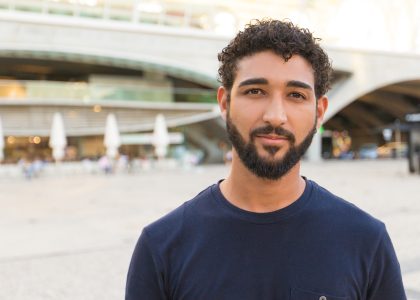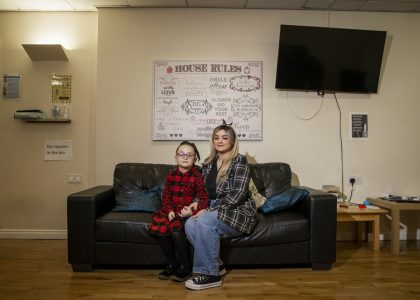We are delighted to announce the award of three multi-year grants to projects that are working with people who are struggling with their mental health and are at a critical point in their housing journey, to deliver support in non-healthcare settings.
For years, our annual Frontline Worker Survey has consistently shown that there is a need to improve access to mental health support for people experiencing homelessness. This is vital to help people secure and keep a safe place to live. In 2022, 75% of frontline staff described accessing mental health support for people they worked with as ‘difficult’ or ‘very difficult’.
As a result, we called for insights on this topic at the beginning of 2023. Thanks to frontline workers and organisations who sent in their views, key areas for improvement were pinpointed, such as the need for more outreach to connect with people, more preventative work, or improving capacity in services. As a frontline worker said: “Some of the service users with mental health issues are deemed as not engaging but the support provided has not built a relationship to understand the person.”
It also became evident that there are times when mental health support is most needed in people’s housing journey, with an emphasis on early intervention, and transition points such as moving-in or moving-on from support or accommodation. A frontline worker stated: “Often people are asked to move services, and this requires people to build new relationships and retell their story. We often find people slip through the cracks here and return to services that they trust but from which they may no longer be able to access support.”
Using this insight from the frontline, we have made up to £600,000 available over three years and following a competitive application process has awarded funding to the following projects:
Rowan Alba’s Psychology in Hostels, in Edinburgh, a project that will embed a clinical psychologist in two supported accommodation homes to deliver targeted mental health support to 45 people with long-term experience of homelessness and trauma. The project will fill a gap that currently exists in the provision of psychological care to people who have experienced trauma and homelessness in Edinburgh, prevent repeat homelessness, and reduce demands on other services such as health or housing.
Karen Barr, interim CEO of Rowan Alba said: “Rowan Alba is delighted to work collaboratively with NHS Lothian and the City of Edinburgh Council to deliver vital psychology services to our residents. The grant from St Martin-in-the Fields Charity is testament to the drive and ambition of the collaborators to end homelessness and ensure that those with severe and enduring psychological trauma get access to the services they need.“
MAC- UK and Look Ahead’s Mental Health and Homelessness partnership, in London and Kent, a project that provides an integrated team of psychologists, practitioners, youth workers, and academics in two of Look Ahead’s intensive support accommodation services for young people aged 16-25. This will directly support 100 young people and provide a better understanding of the barriers they face in accessing mental health services, which can be used to inform better policy and practice.
A spokesperson for MAC-UK added: “We are so pleased that St Martin-in-the-fields Charity will be supporting our project. Through this support we will work together with Look Ahead to pilot ways to improve access to appropriate, contextual mental health support for those experiencing homelessness. In line with our approach (INTEGRATE) which emphasises the importance of building trusting relationships, valuing expertise gained by experience and understanding mental health as affected by wider context, we will co-produce progressive ways of working to transform what mental health support looks like.”
Platfform’s Community Coaching, in Cardiff and Newport, a one-to-one coaching support project for people transitioning from two 24-hour staffed mental health crisis houses, back into the community. The support offered includes advocacy and connection to relevant services and community resources. This project will provide follow on support for people after a mental health crisis who are often returning to the same circumstances they left.
Rhys Hewings, Head of Crisis Prevention and Home at Platfform told us “We are delighted with receiving the funding from St. Martin’s Charity. The funding will help us ensure that everyone’s stay at the Crisis House, and their transition from it, are as impactful for the person as possible. Through development of positive relationships with their coach, we will wrap support around people so they can consider what steps they want to take for the future, and have the “secure base” psychologically, to make changes and pursue their goals and hopes.“
Tim Bissett, Director of St Martin’s Charity said: “For years, frontline homelessness staff have told us that access to appropriate mental health support was lacking. Thanks to the knowledge of frontline workers and organisations, and the generosity of our donors, we have been able to award these grants as a response to this need. We will monitor these projects for the next three years and learn from them, so we can continue improving our work in supporting people experiencing homelessness”.




